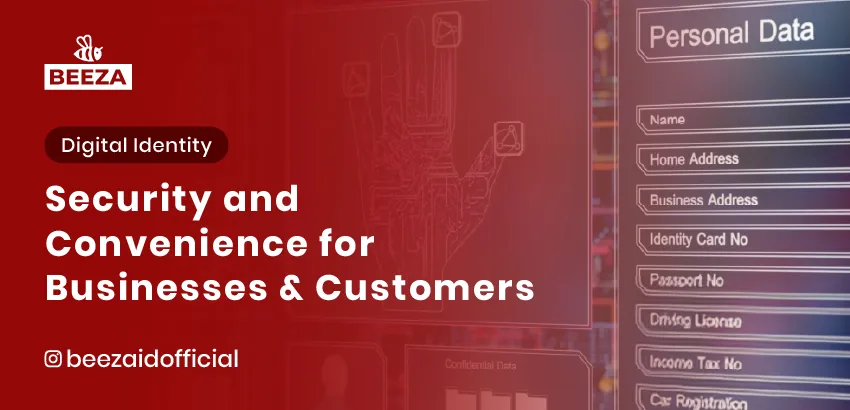
In today’s digital era, speed and security are crucial elements of service delivery, especially in areas involving personal data and financial transactions. Digital identity has emerged as a key solution to meet these demands. With this technology, identity verification becomes faster, more secure, and more convenient for customers, while improving operational efficiency for businesses.
This article explores what digital identity is, how the technology works, its benefits for both businesses and customers, and real-life examples of its implementation in finance and public services.
What is Digital Identity?
Digital identity is the digital representation of an individual’s identity used to access online services—such as opening a bank account, signing documents, or performing financial transactions. It may include biometric data (face, fingerprint), national ID numbers, email, phone number, and digital signatures uniquely tied to the individual.
Digital identity solutions are typically integrated with eKYC (electronic Know Your Customer), digital signatures, and liveness detection to ensure the individual is physically present during the verification process.
How Does It Work?
Digital identity technology combines several core components:
- Biometric Verification
Confirms the identity through facial recognition, fingerprints, or voice authentication. - Document OCR and Validation
Uses Optical Character Recognition (OCR) to extract data from government-issued IDs and validate them against official databases. - Liveness Detection
Ensures the person presenting the face is alive and not using a photo or video spoof. - Digital Signatures
Allows users to sign documents legally and securely, tied to their verified identity. - Digital Certificates and Encryption
Ensure secure data transmission and identity verification over digital channels.
Benefits for Businesses
- Easier Regulatory Compliance
Digital identity solutions help financial institutions and service providers comply with AML and KYC regulations more efficiently, with proper audit trails. - Reduced Operational Costs
Automating customer onboarding and identity checks lowers the need for manual processes and physical infrastructure. - Increased Customer Trust
Secure, quick services build confidence in digital platforms. - Scalable Services
Businesses can handle more users without increasing physical branches or personnel.
Benefits for Customers
- Faster, Simpler Processes
Users can open accounts or sign contracts via smartphone, without needing to visit a physical location. - Stronger Data Security
Personal data is encrypted and managed under strict privacy protocols. - Flexibility Across Platforms
One digital identity can be used across multiple services and institutions.
Real-Life Case Studies
Case Study 1: Bank Jago (Indonesia)
As a digital bank, Bank Jago offers fully remote account opening using eKYC and facial recognition. Customers upload their ID and take a selfie, with accounts activated in under five minutes. This seamless process has helped Bank Jago rapidly increase its customer base without the need for physical branches.
Case Study 2: Indonesia’s Population and Civil Registration Agency (Dukcapil)
Dukcapil enables real-time NIK (National Identity Number) verification for banks and fintechs, helping them validate customer identities efficiently. This integration reduces the risk of identity fraud and speeds up onboarding.
Case Study 3: Fintech Startups (e.g., Investree, KoinWorks)
These platforms use digital identity technology to streamline borrower and lender onboarding, improving speed and security while reducing fraud risks. The use of real-time eKYC and biometric verification ensures credibility and compliance.
Challenges and Considerations
- Data Privacy and Compliance
Digital identity providers must comply with personal data protection laws and ensure users’ information is safeguarded. - User Education
Many users are unfamiliar with how digital identity works or fear privacy breaches. Clear communication and transparency are essential. - Interoperability
For digital identity to be fully effective, systems need to be interoperable across multiple institutions and services.
Conclusion
Digital identity is revolutionizing how individuals interact with digital services. It offers unmatched speed, security, and convenience for both businesses and end-users. As more sectors adopt this technology, it will become the foundation for secure, seamless digital interactions, especially in finance, e-commerce, healthcare, and public services. By embracing digital identity, businesses not only enhance their efficiency but also contribute to broader digital inclusion.
Ready to Embrace Digital Identity?
Digital identity is not just about efficiency—it’s about building trust and security in every digital interaction. It’s time for your business to adopt this technology to streamline verification processes, strengthen compliance, and enhance customer experience.
Contact Beeza today for a consultation on digital identity solutions tailored to your industry needs—from eKYC and digital signatures to biometric data security.
Explore more digital solutions with Beeza and build a strong technological foundation for the future of your business.